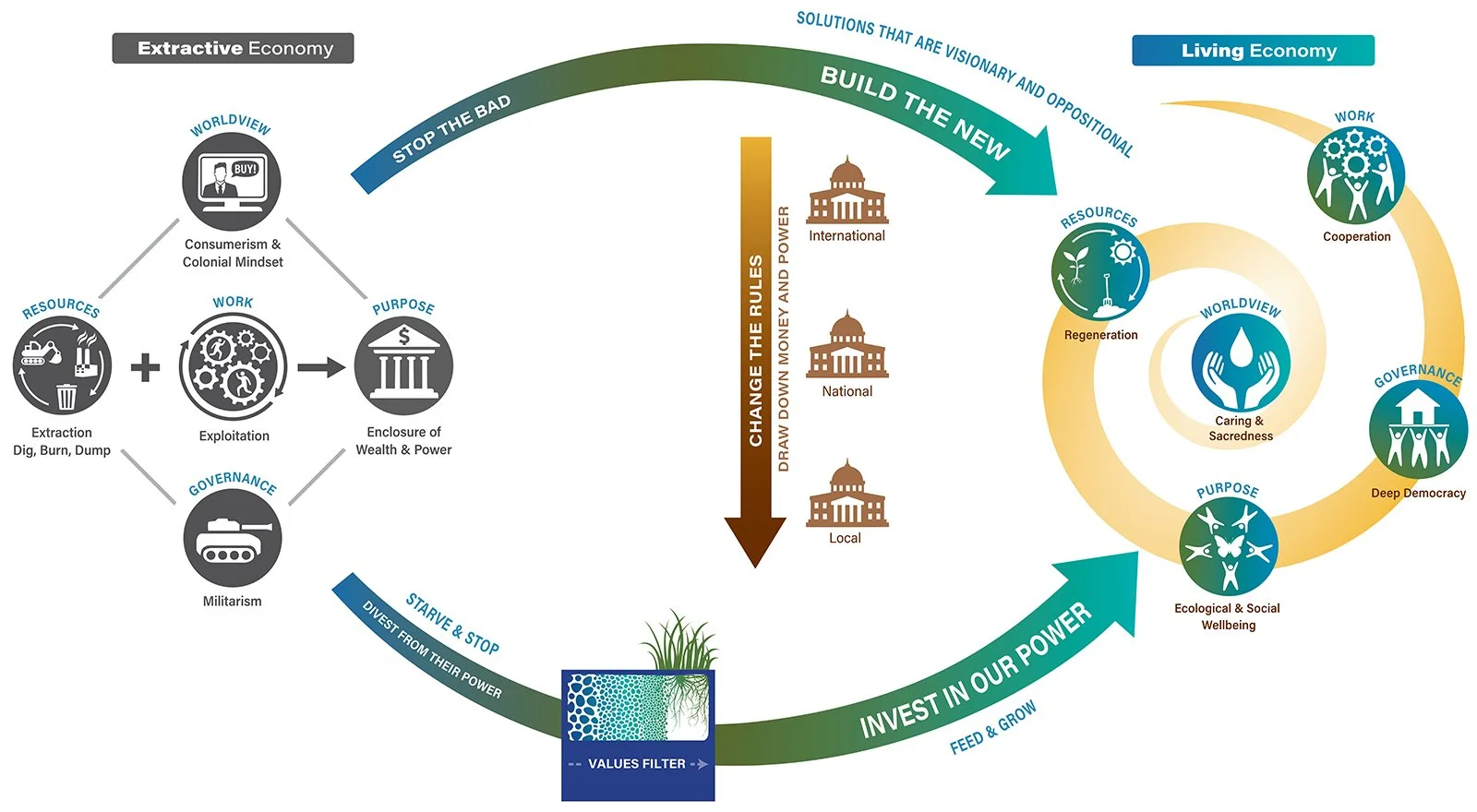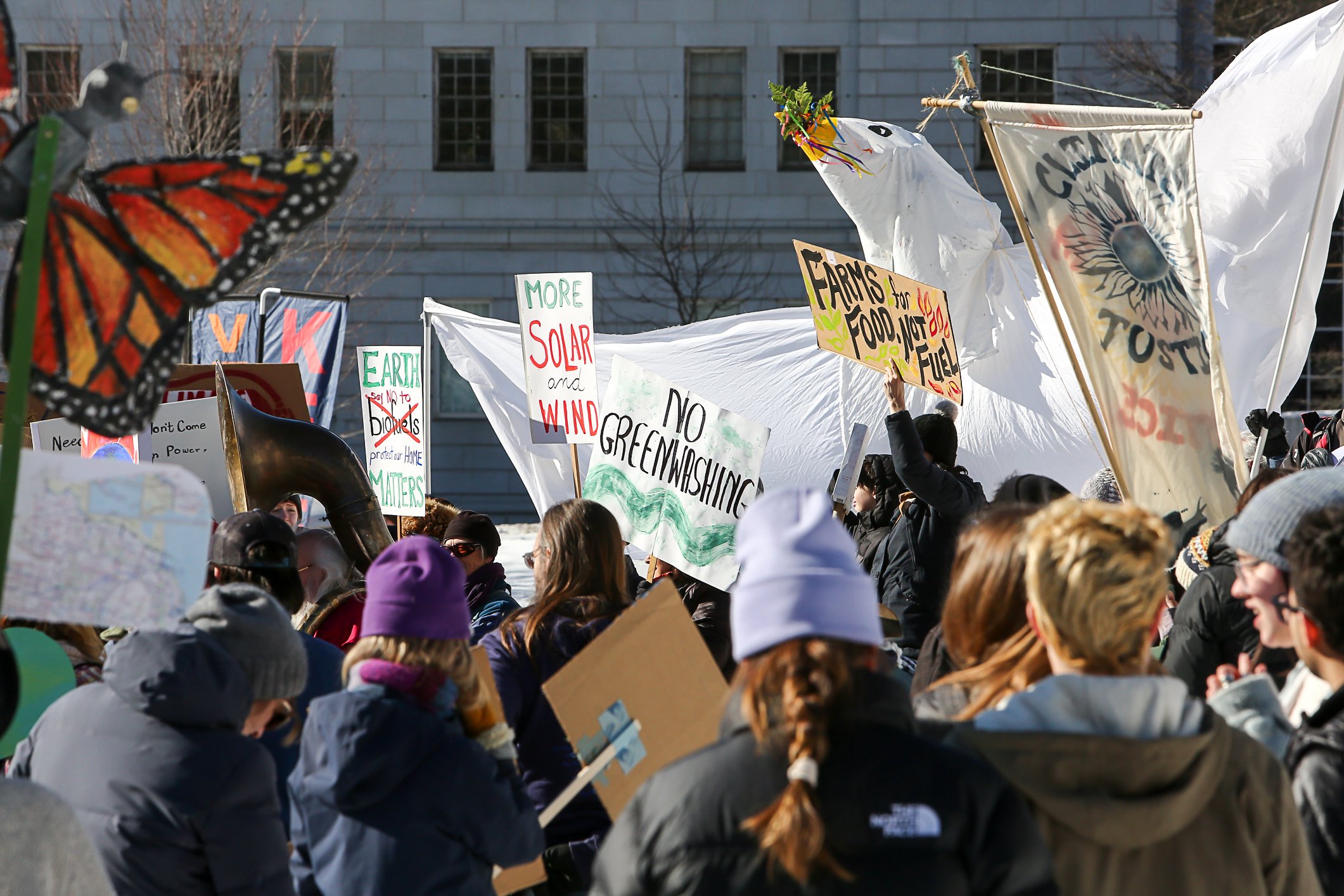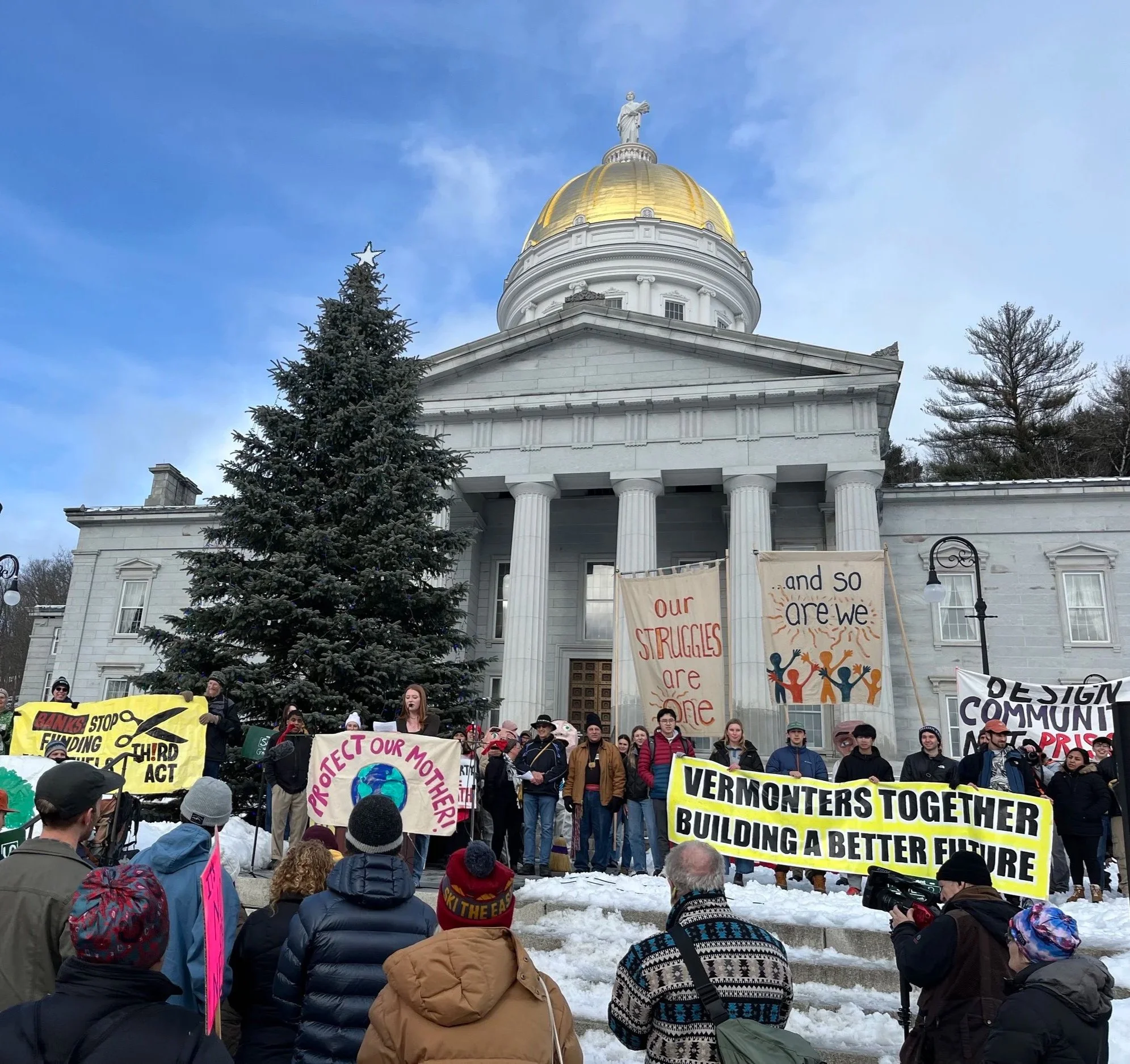A Just Transition for VT
Climate solutions will be effective only if they address the inequalities that funnel profits to the rich at the expense of low-income families, people of color, women, queer and trans folks, and people with disabilities.
Just Transition: What It Is & Why It Matters
The roots of the climate crisis and other social injustices are the same.
Our world is built on resource extraction, worker exploitation, and overconsumption; our economy prioritizes profits for the ultra-rich over the well-being of people and planet. True climate solutions must bring about a Just Transition to a regenerative economy that allocates wealth more fairly, promotes the health and resilience of communities and ecosystems, and provides jobs in sustainable stewardship and low-emissions energy.
We are committed to uplifting the needs of those most affected by the climate crisis, who are often overlooked in favor of the powerful. We are committed to fighting for space at the table for those who have been excluded from decision-making. We are committed to showing up for our allies in the fight for justice, recognizing that their work is part of the overall movement for a thriving future for all.
We can’t win without a just transition for all.
source: Climate Justice Alliance
A Just Transition for VT
Volunteers in 350VT's network have spent thousands of hours researching, discussing, and collecting input on the climate action steps that will best serve Vermonters (along with the rest of life on Earth!). We’ve identified true climate solutions that keep energy dollars in our local economies, improve our quality of life and resilience to disasters, safeguard our health and the health of our planet’s ecosystems, and reduce energy use and greenhouse gas emissions.
Any climate response must, at minimum:
Serve community well-being, not corporate profit.
Meet the needs of everyday people in Vermont, particularly families, workers, low-income, BIPOC, and other vulnerable communities.
Significantly cut energy use and greenhouse-gas (GHG) emissions, and phase out combustible fuels.
Strengthen natural systems’ ability to draw down and sequester carbon from the atmosphere.
Strengthen human and ecological resilience to climate change and natural disasters .
Avoid energy alternatives that simply export damages to elsewhere in the world.
History of JT & the JT Alliance
The just transition concept first emerged in North American labor movements in the 1970s, and has since become a foundational aspect of global climate response, including in the 2015 Paris Agreement.
The Just Transition Alliance was formed in 1997 by grassroots leaders José Bravo, Tom Goldtooth, RIchard Moore, Pam Tau Lee, Connie Tucker and Jenice View, who saw an urgent need for collaboration between environmental justice movements and labor unions.
“We ground our work in building relationships with workers in polluting industries and communities affected by those industries. We strengthen collaboration between these groups to activate just transition pathways away from toxic processes and towards safe, dignified and deeply rewarding livelihoods.”
—from the Just Transition Alliance website




